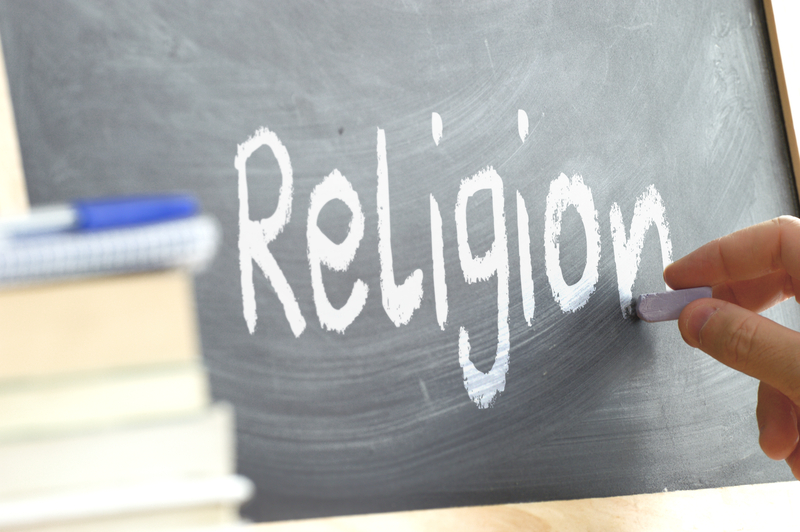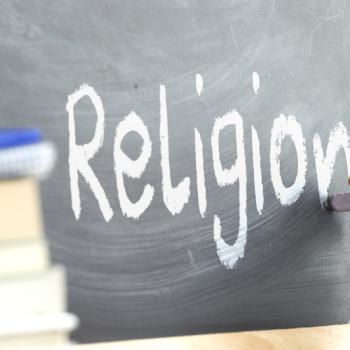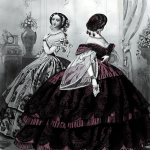The Florida Department of Education has been directing middle school and high school teachers to work Christian nationalism into their lessons. This is according to journalist Judd Legum in his substack column Popular Information, “Florida educators trained to teach students Christian nationalism.” The aim, it appears, is to teach children that only Christians are real Americans. It is also part of a larger plan to sidestep the Constitution and allow conservative Christianity to dictate U.S. laws and policies.
Judd Legum obtained training materials produced by the state of Florida and used in teacher training sessions. Legum also talked to a Florida middle school teacher named Myndee Washington who had attended Florida Department of Education training programs for teaching civics. “Washington told Popular Information that, in one session, the presenters used the King James Bible to illustrate their points. ‘I was absolutely gobsmacked,’ she said.”
Christian nationalism in the United States is the belief that Christianity had a special place in the nation’s founding and deserves special privileges and respect over other religions. This belief is contradicted by history, however. As explained in an earlier post, The Myth of a Christian Nation, the men who met and drafted the U.S. Constitution resisted proposals to give Christianity any special status in the new government.
Christian Nationalism in School: What the Founders Really Intended
Religion is mentioned twice in the Constitution. Article VI, clause 3, provides that “no religious Test shall ever be required as a Qualification to any Office or public Trust under the United States.” In other words, no public office can require that the office holder be Christian. The First Amendment protects the free exercise of religion, but it also says “Congress shall make no law respecting an establishment of religion.” In the language of English common law, “establishment of religion” does not mean starting a new religion but “establishing” a particular sect as a nation’s official state religion. This literally means that the federal government cannot recognize an official state religion, including Christianity, and must maintain neutrality among religions.
James Madison, the chief author of the First Amendment, was well known to be in favor of separation of church and state. Indeed, he believed the free exercise of religion is not possible where religions can use government to further their beliefs and practices. In his writings Madison expressed concerns about religious factions taking conrol of government and passing laws that favored their particular sect. He warned that laws that allow you to discriminate against other religions could someday be used to discriminate against yours. The best remedy for this, he thought, was to remove from government the power to interfere with or discriminate in religious matters.
Florida’s Revisionist History
In the version of revised history favored by the Florida Department of Education, Christianity — Protestant Christianity especially — was much more influential in the founding of the United States than any of the Enlightenment philosophers like John Locke or Jean Jacques Rousseau. Never mind that oceans of scholarship tell us that 17th and 18th century philosophers like Rousseau and Locke clearly influenced the founders of the first modern democratic republic. Christianity, on the other hand, for centuries had been used to support monarchies. (See the previous post, “The Appeal to Heaven Flag and Why It’s Controversial,” for more discussion of the influence of John Locke on Thomas Jefferson.)
Teacher Myndee Washington reported that teachers were told the founders were “all Congregationalists,” so they couldn’t have intended to separate church and state. In fact, several of them — notably Madison, James Monroe, Benjamin Franklin, and possibly George Washington — were not Christians but Deists. Deism was a religious movement of the 17th and 18th century that acccepted a creator God but not a God that intervened in human affairs. And they denied the divinity of Jesus. Thomas Jefferson did not take part in the Constitutional Convention but was definitely a Deist.
And, of course, the Florida Department of Education wants children to be taught that Ameerica’s laws were based on the Ten Commandments, another claim that has no basis in real history. See “The Ten Commandments and the Origins of Law.”
Religion in a Pluralistic Nation
American public schools are available to all American children, regardless of religious affiliation, race, or whatever other demographic category you might sort children into. And since the establishment of public school systems there has been tension between those who want religious observances in schools, and those who don’t. “Those who don’t” often are not hostile to religion. Most of the time they are members of minority faiths who find themselves pressured into reloigious observances that violate their traditions.
Freedom from such coercion has been fought in the courts through such cases as Engel v. Vitale (1962) and Abington School District v. Schempp (1963). In the majority opinion in the Schempp case, U.S. Supreme Court Justice Thomas Clark wrote that religious sects must not be allowed to use government to promote their tenets or enforce their religious practices. When government and religion are fused, he said, this interferes with the right of each citizen to freely choose his own course in regard to religion.
So far the Florida State Department of Education isn’t calling for Bible readings and classroom group prayers, I don’t believe. But allowing Christian nationalist ideology into public schools by re-writing history and pretending the Constitution doesn’t say what it says is just another attempt to use a government to indoctrinate school children into a particular religious sect. And this is in service to a larger goal of allowing conservative Christianity to dictate the nation’s laws. But this is very far removed from what the founders intended.














